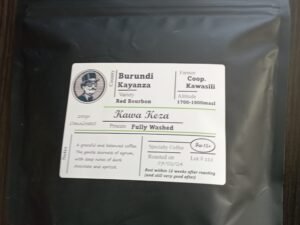The Importance of Farmer Support in Burundi’s Coffee Industry
Supporting farmers is pivotal to the development and sustainability of Burundi’s coffee industry. The farmers in this region face numerous challenges, including economic instability, restricted access to essential resources, and the adverse effects of climate change. These factors collectively hinder their capacity to cultivate high-quality coffee and achieve financial stability. Therefore, comprehensive farmer support initiatives are crucial in mitigating these challenges and ensuring the prosperity of Burundi’s coffee sector.
One of the primary initiatives aimed at empowering Burundi’s coffee farmers is the implementation of fair trade practices. Fair trade ensures that farmers receive a fair price for their coffee, which helps stabilize their income and allows them to invest in better farming techniques and resources. This not only improves their quality of life but also enhances the overall quality of coffee produced in the region.
Additionally, cooperative models have emerged as a significant form of support. By forming cooperatives, farmers can pool their resources and collectively negotiate better prices for their coffee. This collective bargaining power enables them to access markets that would otherwise be unreachable for individual farmers. Cooperatives also provide a platform for sharing knowledge and resources, which is crucial in improving agricultural practices and business acumen.
Training programs focusing on advanced agricultural techniques and business skills are another vital component of farmer support in Burundi. These programs equip farmers with modern farming methods that increase productivity and sustainability. Topics such as soil health, pest management, and climate-resilient farming are covered, ensuring that farmers are well-prepared to face the changing environmental conditions. Moreover, business training helps farmers manage their finances better, plan for future investments, and market their coffee more effectively.
There are several success stories that illustrate the positive impact of these support initiatives. For instance, many farmers who have participated in these programs have reported significant increases in their yields and incomes. Improved farming techniques have led to higher quality coffee, which fetches better prices in the market. As a result, these farmers have been able to invest in their communities, improving infrastructure, education, and healthcare.
In conclusion, supporting farmers in Burundi’s coffee industry is essential for overcoming the region’s unique challenges. Through fair trade practices, cooperative models, and comprehensive training programs, farmers are empowered to improve their livelihoods and contribute to the sustainability and growth of the coffee sector. The success stories from these initiatives underscore the importance of continued support and investment in the farmers who are the backbone of Burundi’s coffee industry.
The European Coffee Experience and Its Impact on Burundi Coffee Farmers
The European coffee experience is deeply intertwined with the livelihoods of Burundi coffee farmers. European consumers’ preferences and market demands exert a significant influence on the entire supply chain, from the coffee farms in Burundi to the cups enjoyed in European cafes. This relationship is pivotal, especially considering Europe’s role as a major consumer of coffee globally.
Burundi coffee embarks on a meticulous journey before reaching European markets. The process begins with the careful cultivation of coffee beans by farmers, who adhere to stringent agricultural practices to ensure high-quality yields. Post-harvest, the beans are processed and graded, with only the finest making the cut for export. European importers then step in, playing a crucial role in bridging the gap between Burundi farmers and European consumers. These importers, along with distributors, ensure that the beans are transported, roasted, and ultimately delivered to various points of sale across Europe.
The growing interest among European consumers in ethically sourced and high-quality coffee has catalyzed positive changes for Burundi coffee farmers. This shift in consumer behavior has led to an increased demand for transparency in the supply chain and a focus on sustainable and fair trade practices. European companies and organizations have responded by initiating partnerships with Burundi farmers, aimed at promoting sustainable practices and ensuring fair compensation.
Several initiatives spearheaded by European entities are worth noting. These initiatives often include providing farmers with training and resources to adopt eco-friendly farming techniques, facilitating direct trade relationships that bypass intermediary costs, and implementing fair trade certification processes. Such measures not only enhance the quality and sustainability of the coffee but also improve the economic well-being of the farmers.
Ultimately, the European coffee experience is enriched by the narratives and efforts of Burundi coffee farmers. By prioritizing ethically sourced coffee, European consumers contribute to a more sustainable and equitable coffee industry, simultaneously enjoying superior coffee while supporting the hardworking communities behind its production.




